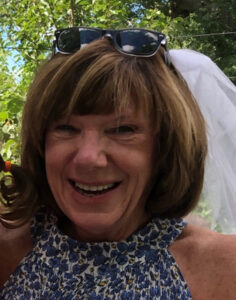Teri Bre nnan is a nurse from Crozer Health Regional Cancer Center at Brinton Lake in Concordville, PA, who works closely with Bringing Hope Home and our team, referring families who are in need to our grant program. Over the past 3 years, Teri and her team at Brinton Lake have referred 18 local families to our grant program for assistance through our Light of Hope Family Grant Program. Teri has taken some time to share a little bit about herself, her work before and during the COVID-19 Pandemic, and her experience working with Bringing Hope Home.
nnan is a nurse from Crozer Health Regional Cancer Center at Brinton Lake in Concordville, PA, who works closely with Bringing Hope Home and our team, referring families who are in need to our grant program. Over the past 3 years, Teri and her team at Brinton Lake have referred 18 local families to our grant program for assistance through our Light of Hope Family Grant Program. Teri has taken some time to share a little bit about herself, her work before and during the COVID-19 Pandemic, and her experience working with Bringing Hope Home.
After having her three children, Teri was looking for some more flexibility and fell into nursing as a second career. In the process of becoming a nurse, she realized that being a nurse was what she was meant to be doing all along. Teri has been an outpatient radiation and oncology nurse at Crozer Health Regional Cancer Center at Brinton Lake since 2017.
Teri’s typical day as a cancer center nurse includes actively treating patients and conducting follow ups. She spends time with newly diagnosed patients and goes through what they can expect, where and what they are testing, and gathers lab results and other information. Teri also speaks with patients who are having any general issues, and praises how responsive Crozer Health Regional Cancer Center is to helping not only current patients, but potential patients with any medical issues they may be facing. Whether it be cancer or any other medical issue, Teri works hard to ensure that patients get the resources and referrals that they need.
During the pandemic, Teri shared that they never missed a day and continuously provides active treatment to patients. She shared that one of the most difficult challenges she has faced during the pandemic is seeing the patients’ fear. The fear that the pandemic has produced in patients, including the reluctance to be seen by a doctor in an office or hospital, has led to later diagnoses that could have been caught and treated earlier. The burden of added financial stress, in a time were jobs and income are in a place of uncertainty, is also a challenge that Teri sees patients face. Teri also mentioned that although she has continued to work with patients, either virtually or in person, she misses everyday experiences, such as the small acts of being able to serve patient’s coffee and have sit-down conversations.
The most difficult part of her job, pre-pandemic and now, has always been watching patients do everything they can and still lose their battle. The journey of getting to know the patients and their families and watching them suffer is something that Teri finds very challenging. The greatest joy Teri receives from her work is getting to see all of the success stories. Teri described how happy and rewarded she feels when patients come back to share that they fought and beat their battle and are in such healthier and happier places.
Teri shared that she and the other nurses would often discuss resources and information on how they can further help patients, and that is how she first discovered Bringing Hope Home. Teri said her experience with Bringing Hope Home is “just beautiful.” She spoke of the appreciation she has for the staff and volunteers she has connected with. “Bringing Hope Home as an organization and resource that does every little bit to help,” described Teri. She expressed that Bringing Hope Home provides more than just financial assistance;
Bringing Hope Home is an organization that is dedicated to the kindness and willingness of connecting people who want to pay it forward and giving support to families who are facing the struggles that cancer has brought.
Teri is so grateful for her experience with Bringing Hope Home and our community. The time Teri has spent working with the staff and volunteers has shown her that even the smallest acts of kindness provided, along with financial assistance, spreads hope and generosity to families in need. We at Bringing Hope Home thank Teri endlessly for being a dedicated member of the community and appreciate all of the work she has done.
Interview and article by BHH intern Jessica Rossbauer
